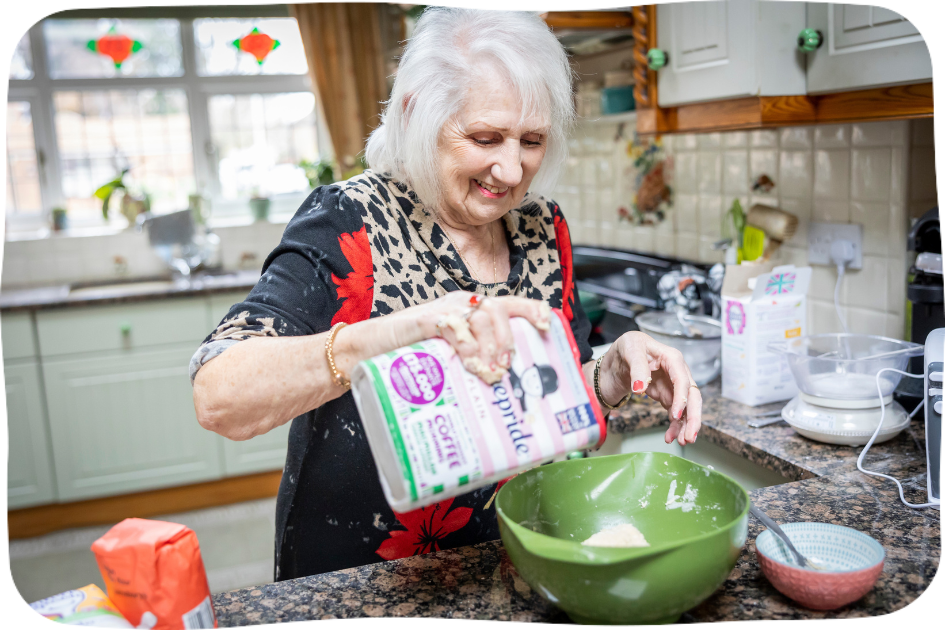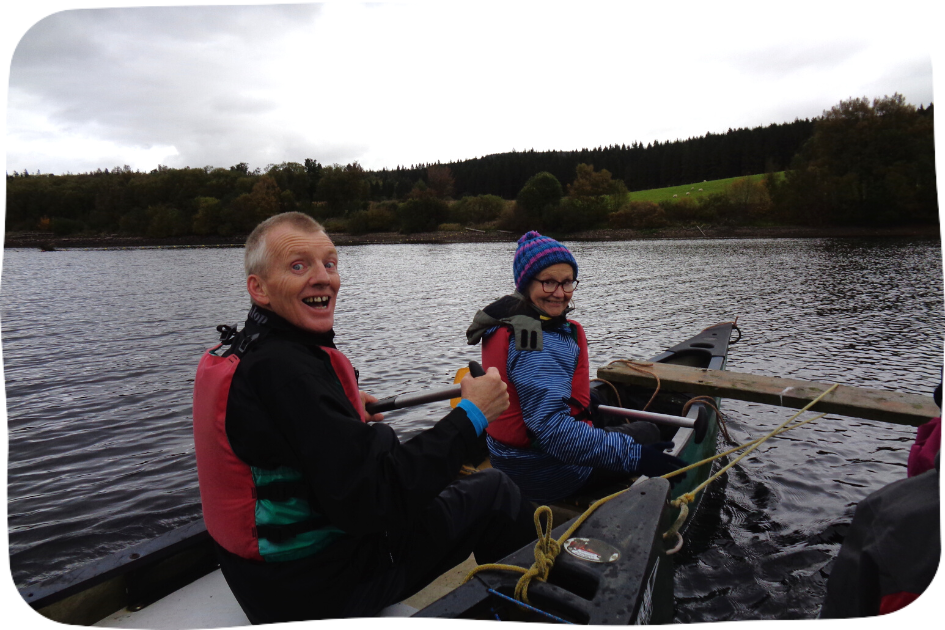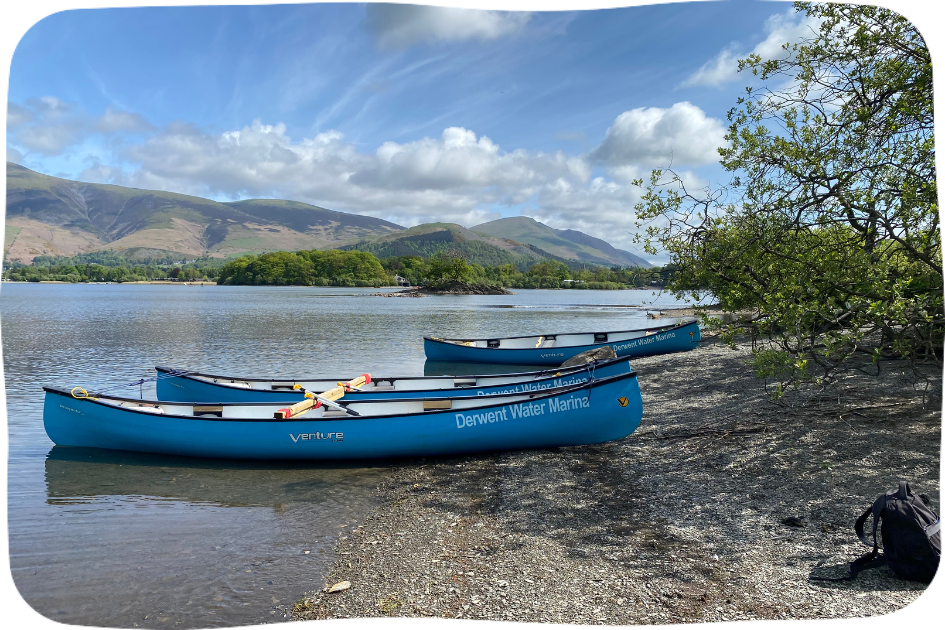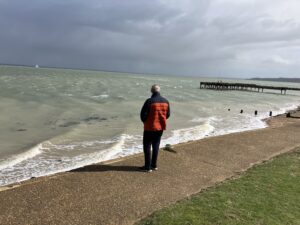When people are first told they have dementia, even if it’s expected, many feel that their life is over. But receiving a dementia diagnosis is not the end. It is possible to live a full, joyous life doing the things you love long after diagnosis, and with the right support, people can have a high quality of life at all stages of the disease.
Living with dementia will inevitably cause some changes to the way you do things, but they don’t all have to be negative.
Doing What You Love

Having dementia doesn’t need to stop you from doing the things you love to do — you may just need to adjust how you do them. A lot of adjustments may involve accepting the help of other people, which some can find difficult to do. However, you’ll often be surprised by how willing those around you are to help, and how good it feels for both you and them when you accept their help positively.
So, what do ‘adjustments’ for dementia look like when doing the things you love? They can be extremely simple! For example, if you’re a cook or a baker, put sticky notes on your cupboard doors and equipment to remind you what they contain and how they work, and ask someone to keep you company in the kitchen while you bring a recipe to life.

Outside the home, there are groups specifically for people living with dementia for countless different kinds of activities. There are choirs, gardening groups, coffee mornings, nature walks — try googling an activity plus the words ‘dementia group’ and the name of your local area.
Or if travel and outdoors activity is a passion for you, take inspiration from Andy and his wife Sue. They remained active and engaged in travelling for the whole of Andy’s life by choosing UK-based breaks operated by companies that offered extra support — a good number of them were with Dementia Adventure.
Preparing for the Challenges
It can be difficult to think ahead to the later stages of dementia, and many people find it too upsetting to talk about. But if you can have these conversations, preparing in advance is the best way to ensure that you and your loved ones are on the same page in knowing how to support you to keep living a happy, engaged life.

This article on the Alzheimer’s Society website offers really useful advice on planning ahead as a person with dementia. It may be easier to tackle it a bit at a time, with one conversation per section, rather than sitting down with your loved ones to go through the entire thing.
At every stage, we advocate for the person living with dementia to have as much choice and control as possible over decisions about their lives. People with dementia can live independently for many years, but it’s important to plan how you can involve other people in your decision-making if you need to in the future. Think about whether you need to put any legal measures in place to ensure this; what you want your living situation to be when you begin to require more comprehensive support; and what you want to do with your money both during your life and after.
Memory Loss
One of the most common and well-known symptoms of dementia is problems with memory. The idea of losing something so automatic is frightening; however, it’s important to know that memory is not a simple function that just disappears one day.

Even in the late stage of dementia, your memory is still operating, albeit in an altered way. In engaging with people and activities you love, your brain creates feel-good chemicals that can remain in your body long after the meet-up or activity has ended. Though you may not be able to remember the details of a day out, for instance, you will retain the feelings and emotional associations that it inspired in you.
That is why it’s so important never to say, ‘There’s no point in doing that,’ when you’re considering doing something that will bring you pleasure. The point of doing such things is to bring you joy, and that joy is what will stay with you afterwards.
Engaging with Nature
For people with dementia, research shows that meaningful outdoor activity and connection with the natural environment can have a positive effect and can slow down the progression of the symptoms.

When we keep our brain stimulated, it strengthens our neural pathways, even creating new connections. Just 20 minutes of movement outside can stimulate the brain, releasing hormones that provide the right environment for the growth of new cells. Being outside also exposes you to greater levels of fresh air and oxygen, both of which are essential to human brain function.
In 1984, a study found that patients with views of nature recovered faster than those without. It’s since been found that interacting with nature is intrinsic to our physical, emotional, and mental wellbeing. It lowers stress levels, increases creativity, and improves our social interactions and communication.
Read more about the Benefits of Nature here, or take a look at our Tips on Connecting with Nature on Your Doorstep.
A Positive Approach
As you may have gathered over the course of this article, Dementia Adventure believe in thinking differently about dementia. Our positive focus is on the individual and not on the condition. We look at what you can do, not what you can’t, and concentrate on ‘the possible’. With the right support, you can continue to do the things you have always enjoyed, keep active, remain a valued member of society, and have a high quality of life.
With the right support, anything is possible.
We offer free, online training for friends and family of people living with dementia that aims to help them Understand Dementia Better. These sessions are full of practical hints and tips to help carers in their support role, and to help people living with dementia retain a good quality of life.
If you’re affected by dementia in any way and looking for more immediate support, the Alzheimer’s Society has a dementia support helpline that you can call. On the other end of the phone are trained staff ready to give you the support you need.













